I love Vietnam. It’s one of my favourite countries in the world. There’s a wide variety of things to do, the food is delicious and it’s incredibly cheap to backpack around the country.
But… amongst the many kind Vietnamese people are a whole load of scammers and rip off merchants eager to pounce on unsuspecting tourists. Across my personal travel experiences (predominantly in Asia), I’d put Vietnam in the top three, alongside Sri Lanka and Morocco, of the worst countries for this type of behaviour.
In this post I’m going to detail some of the common scams/rip offs and how to avoid them. Apologies in advance for the Vietnamese currency jokes…
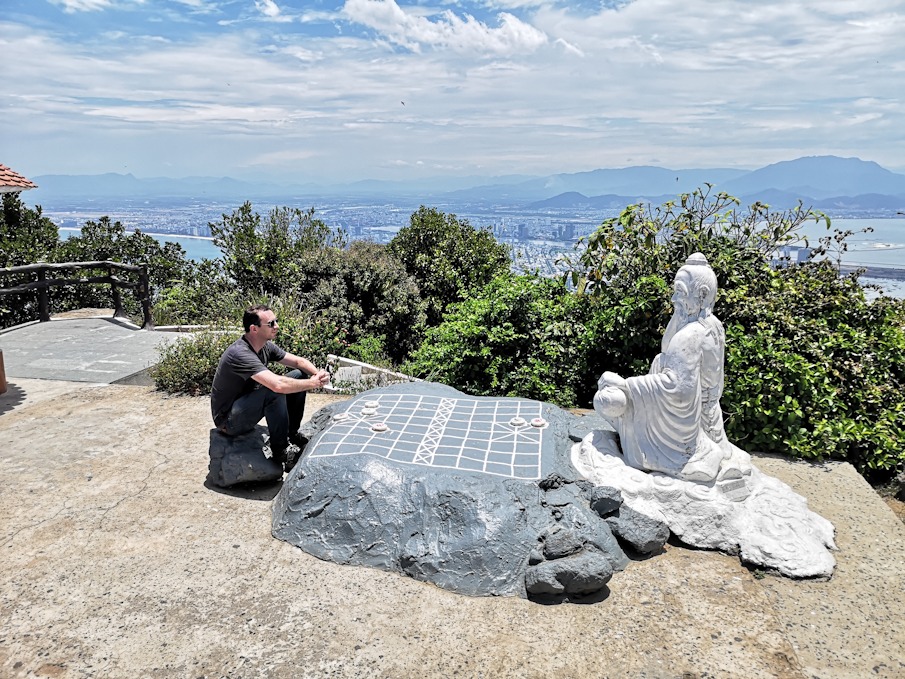
1. Taxi drivers charging ridiculous fees
The most common of them all and a regular frustration for travellers in many countries. This is especially prevalent at transport hubs and tourist attractions, I’ve been quoted up to ten times the price I can get through Grab, an app like Uber, while in Vietnam. Usually the multiple is far less, but I expect every quote from a taxi driver to be at least double what it should cost.
Where it happens
Basically anywhere that you try and get a taxi. Expect the largest mark ups to be at the aforementioned transport hubs and tourist attractions. Where possible, walking just a minute away from these areas and hailing a taxi should get you a lower quote, but it will still usually be higher than it should be.
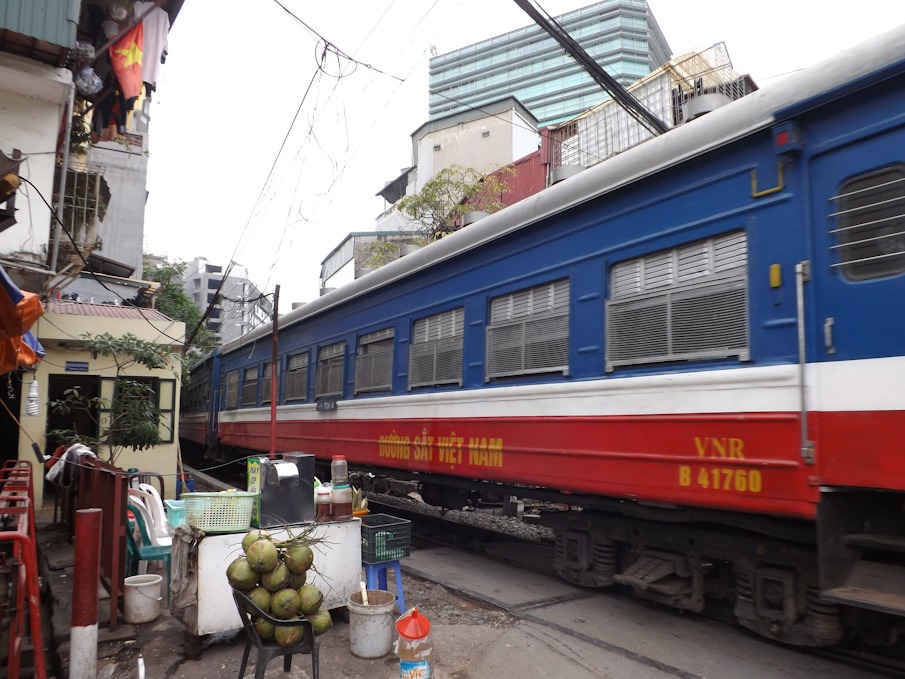
Location: Hanoi Train Street (not an actual train stop)
How to avoid
Option 1 – Use Grab. It isn’t available everywhere in Vietnam but, where it is, I’d suggest using this to avoid hassle.
Note that if a taxi driver shows you the Grab price on their phone, you shouldn’t believe it – they have probably selected a (far more expensive) VIP option. I have fond memories of this at Da Nang Airport – some drivers quoted 500,000 VND (£16.35 GBP) for a short ride to the city centre and, using their phone, showed me a similar price on Grab when I declined. When I checked the price on Grab myself, it was about 50,000 VND. I showed this to the next driver who approached me and, with me STARING AT THE SCREEN, he scrolled through the different Grab options on my phone to some VIP service costing about 500,000 VND, then acted like this was proof that his quote was fair and not ten times the normal price – how stupid does this guy think people can be!?

Option 2 – Ask for the driver to put the meter on before agreeing to the ride. This should get you a fair price but beware that fake meters, which rise faster than they should do, aren’t unheard of. The other risk here is that the driver can take a long ‘scenic’ route to your destination – having the route on your phone can easily put a stop to this.
Option 3 – If they insist on a fixed price, be prepared to haggle hard and willing to walk away. It’s best to have a rough idea of prices in advance, otherwise you won’t know what sort of fixed price to aim for.
I’d only use option 2 or 3 if Grab isn’t available. The app saves so much aggravation and means your money is going to the taxi drivers (minus Grab’s fee) who are willing to work, not the arseholes that hang around tourist spots all day waiting for one big fare.
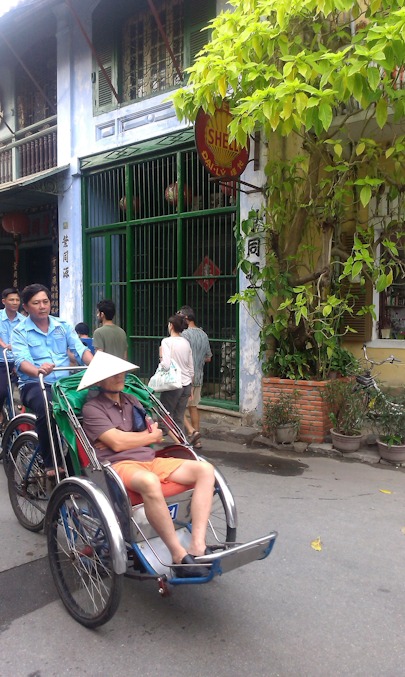
Even with Grab, I had a problem on one occasion. Upon arrival in Sapa, the driver sent me a message asking for 50,000 VND to go from the bus stop to my hostel. The actual price on Grab was about 30,000 VND so I cancelled the booking. This only happened to me once in Vietnam (worldwide, it’s happened to me a couple more times with Uber in Jordan) so I think it’s very rare, but don’t be shocked if it happens.
2. Motorbike taxis
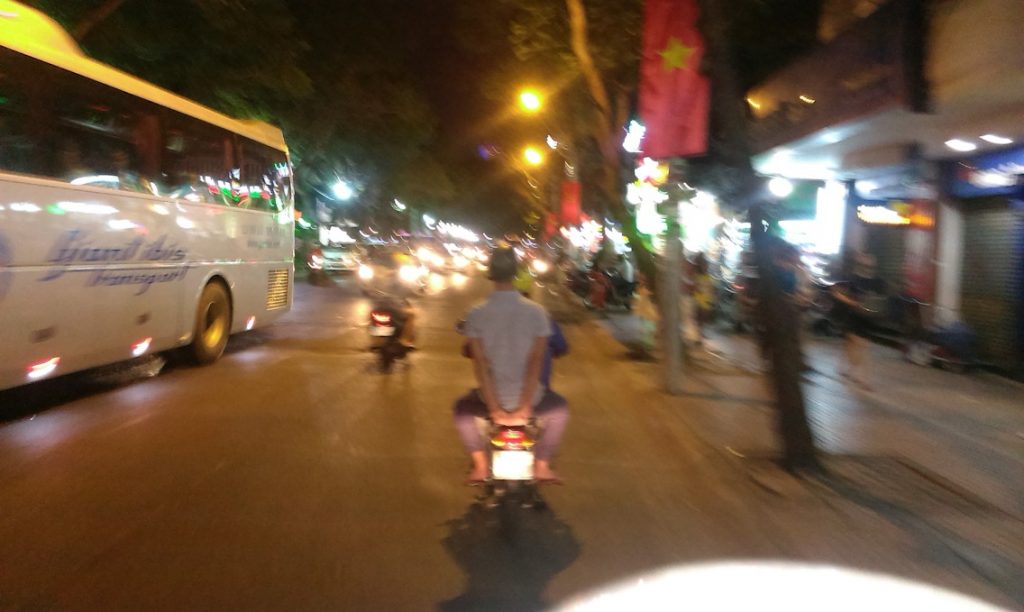
Continuing with the taxi theme, there are motorbike taxis who will offer to take you somewhere. This can be good fun and going should be fine, but you might find the price suddenly rising when you arrive at your destination.
Where it happens
This is one of two cons on this list that hasn’t been tried on me but it could occur anywhere. I suspect it’s more likely to happen in the big cities like Hanoi and Ho Chi Minh City.
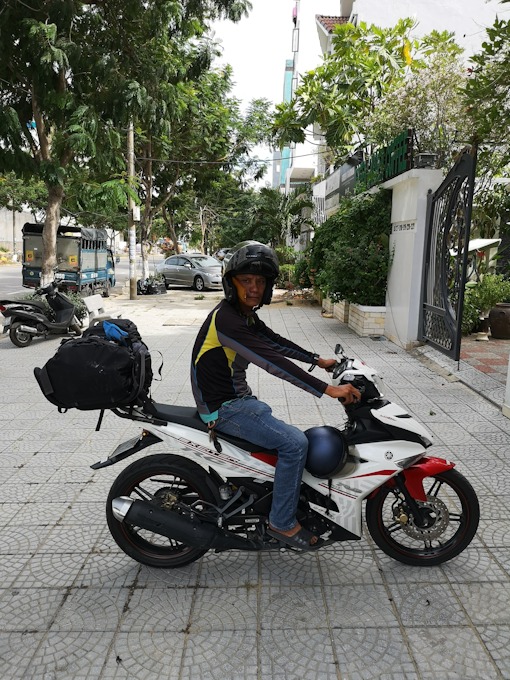
How to avoid
Haggle and agree a fixed price upfront. Check what it costs on Grab to help with your negotiations (don’t give them the chance to grab your phone and drive off). Stick to the agreed price if they ask for more at the end. Any claims that the price has gone up because there was a lot of traffic are nonsense – there is always a lot of traffic in Vietnam!
3. Getting your Dong mixed up
No need to be alarmed – the currency in Vietnam is called the Vietnamese Dong (VND). Banknotes range from 100 VND to 500,000 VND and, aside from the all-important number, the 20,000 VND and 500,000 VND notes look very similar. When handing a 500,000 VND note over, there’s a chance that the recipient might quickly switch it for a 20,000 VND note and pretend you gave the wrong one.
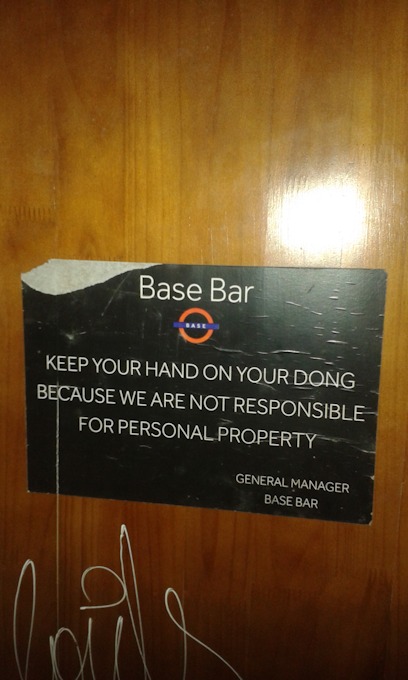
Where it happens
This is the other scam on this list that has never been tried on me, but anywhere where you’re handing over money is a possibility.
How to avoid
Pay attention when handing your money over, the recipient can’t switch notes if you’re watching.
On the subject of currency, break some of your big notes into smaller denominations as soon as you can. Small vendors might say they don’t have change (sometimes true, sometimes not) which can leave you a choice between paying extra or not buying what you wanted. I’ve paid slightly extra for water outside one of Hue’s royal tombs as the girl (who had already tried being flirtatious and using the coin collecting trick – more on these later) claimed she didn’t have any change.
4. Shoe shiners/repairers
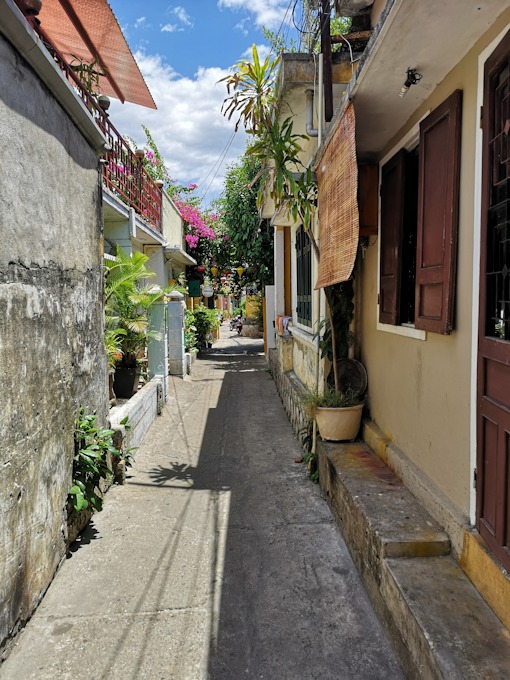
Location: Hoi An
Picture the scene, you’re walking down the street or sitting outside and a guy suddenly exclaims “look!” at you while pointing at your shoes. He offers to shine/fix them and quotes a price. After the work is done, the price changes. The easiest trick here is for the price to double (the quote was per shoe after all) but some chancers may aim higher.
Where it happens
I don’t think it’s exclusive to Hanoi, but it’s been tried on me multiple times here and not at all in other parts of Vietnam.
How to avoid
Just say no – they can’t do any work on the shoes you’re wearing unless you let them. Don’t be like the guy in Goodfellas who asks to have his shoes shined. Note that, if your shoes actually are in poor condition, you’ll still probably have to say no several times before being left alone. Not that I have any experience of being out and about in such shoddy footwear…
5. The coin collector
A local approaches you in the street under the pretence that they want to have a friendly conversation with a foreigner. This interest in you is highly unlikely to ever be genuine if you are in a location popular with visitors. At some point in the conversation, they ask where you are from and proceed to either 1) ask for a coin (or note, the greedy buggers) from your home country for their ‘collection’ or 2) ask if you can give them some VND in exchange for money they have in your home currency. Guess what? If they ask the latter, they got the foreign currency they want to change for VND from a previous unsuspecting tourist.
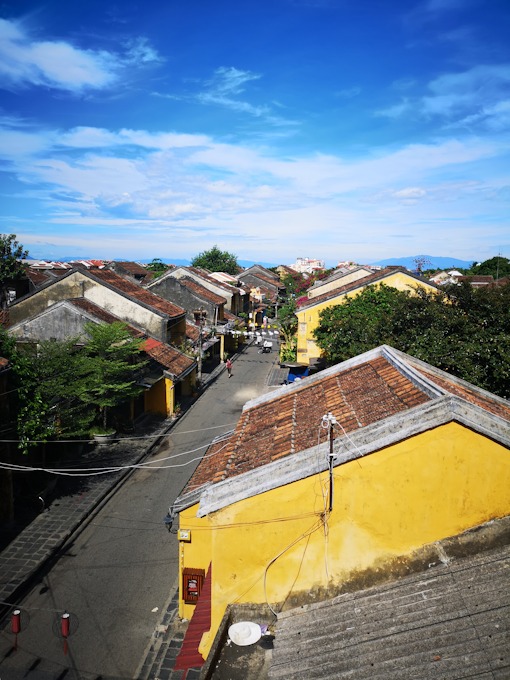
One guy, who looked like he was in his 70s, flat out asked me for VND after I declined his request to exchange currency. He needed the money to help provide for his baby daughter apparently. I suppose I should have congratulated him.
Another version of this trick is to say they are a teacher and want the foreign money to show to their school students or some other variation that involves showing children, since this can elicit sympathy. To be fair, showing foreign currency to kids is better than showing them dong.
Where it happens

Could be anywhere but collecting coins seems to be a very popular hobby in Hue. I have no idea why it happens so much here but it does. I have really fond memories of a morning in Hue where I got stopped multiple times by ‘coin collectors’ on a 15 minute walk from my hostel to a coworking space. When I arrived at my destination, I discovered it had closed down, went on another walk to a different coworking space and met more lovely coin collectors on the way to this one. Really, I should learn to just keep walking and not stop for a chat, but my Britishness usually gets the better of me.
How to avoid
The polite way – go through the motions of the conversation but decline to give/exchange any money. Either say you don’t have any money in your home currency to give them or, if they are asking for VND in exchange, say you don’t need any of your home currency as you’re not going to be there for a long time.
The rude way – just ignore them and keep walking. After getting constantly stopped and bothered by strangers for 20 minutes, hearing the latest tosser shout angrily at you as you walk away is quite satisfying.
6. Being overcharged for food/drink
You sit down, enjoy a meal and receive a bill with the items you consumed, but at higher prices than those on the menu. This is an easy one to fall for if you don’t remember the prices or if they only inflate the bill slightly.
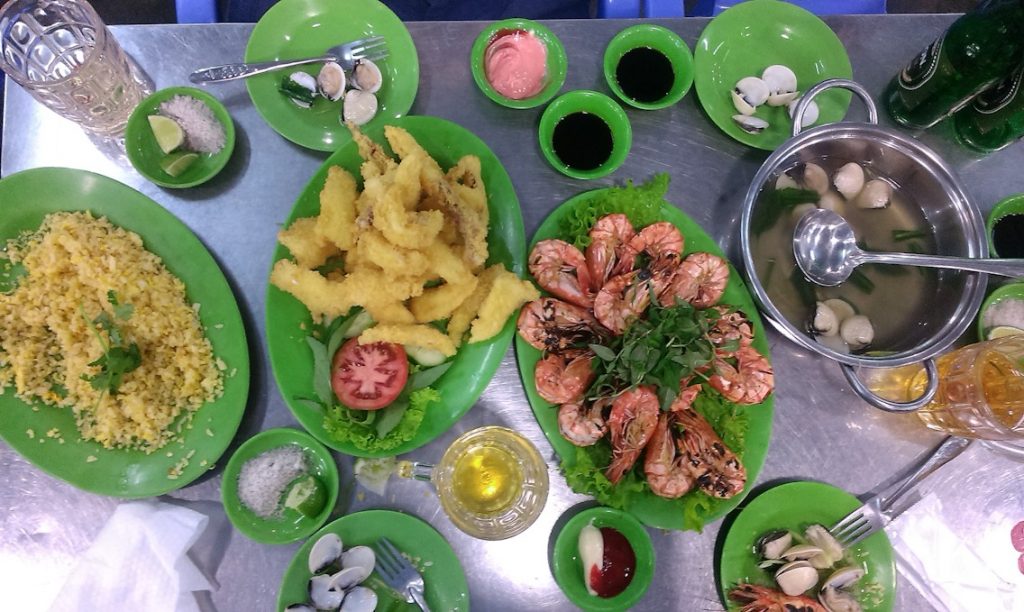
Note: There is a chance, anywhere in the world, that they have genuinely made a mistake with the bill so don’t immediately start making accusations. The opposite happened to me once in Bali where an old lady undercharged me – I could see the meal and drink on the bill added up to more than the total she had written down, but had to demonstrate this on her calculator before she accepted the correct amount.
Where it happens
Again, this could be anywhere. In Vietnam, it has been tried on me once in a small café in Hanoi… with a successful outcome. I must have been having a bad day as I inexplicably went along with it and paid despite knowing the bill was too high. It was hardly any money, but I was really annoyed with myself for not saying anything. Unfortunately, I don’t remember the name of the place so my chance to exact petty revenge on them in this blog or on TripAdvisor has been lost.
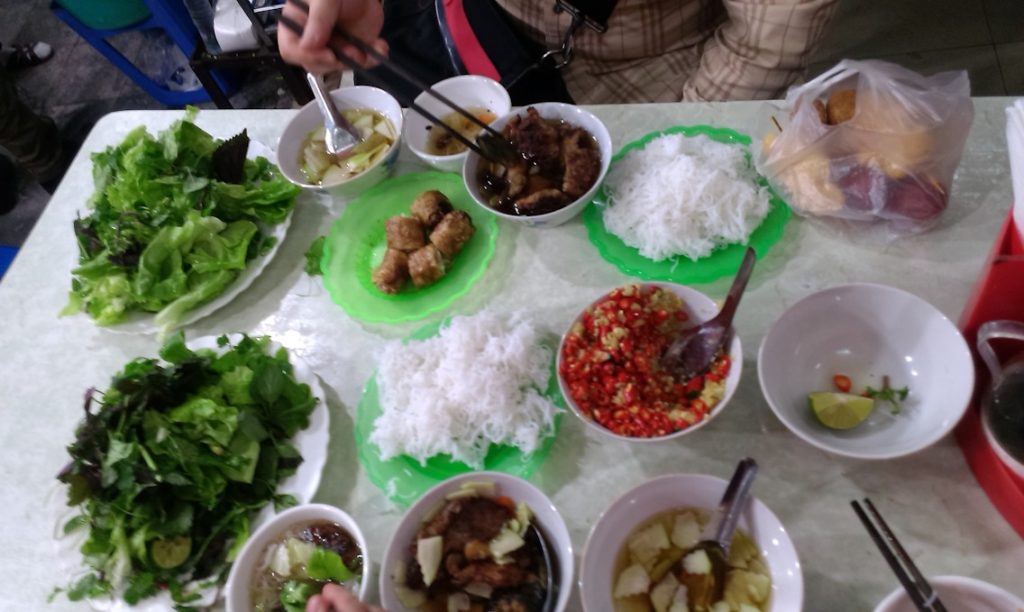
How to avoid
Tell them the prices are higher than on the menu (state the correct prices for all items that you remember the price for) and insist on them giving you the correct bill. Ask for the menu back if necessary to see the prices (bear in mind they might have an overpriced menu exactly for this situation – if this happens, call them out on it). This can get heated but stand your ground – I had a similar situation in Sri Lanka and they eventually charged the right amount after feigning innocence for a while. As an ultimatum, threatening to walk out without paying anything unless they give you the right bill may work – I expect I’ll be testing this theory sometime!
As an extra, warn any other customers about their nefarious practices on your way out. The other customers deserve to know and it’s an easy way to stick it to the owners. Win win.
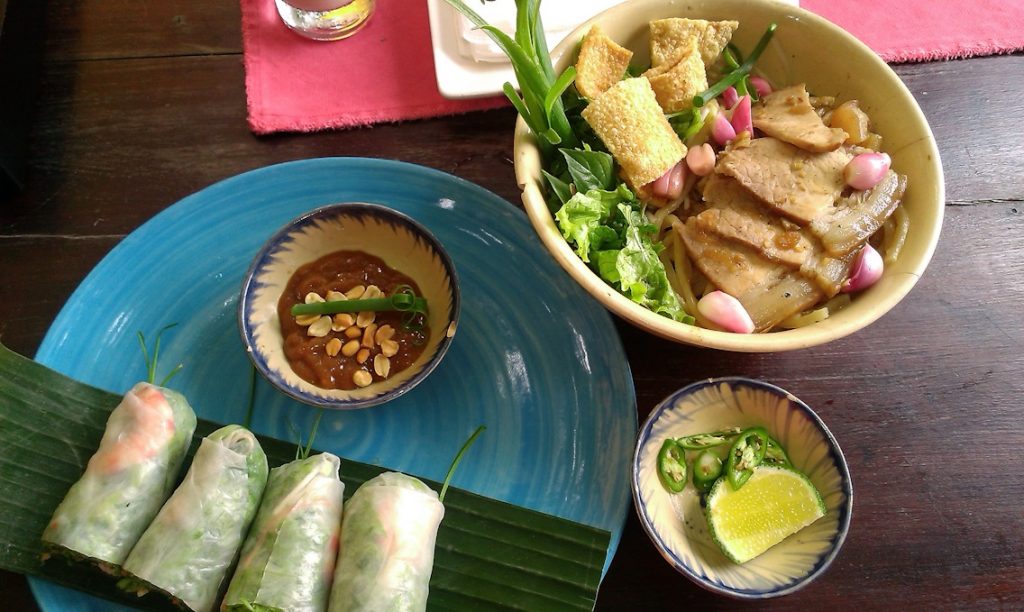
7. The photo opportunity
At some point while exploring, you may be asked by a local if you want to take a photo either of them or yourself carrying a traditional Vietnamese bamboo shoulder pole. They might say it’s free when encouraging you to take the photo, but they’ll soon change their minds afterwards!
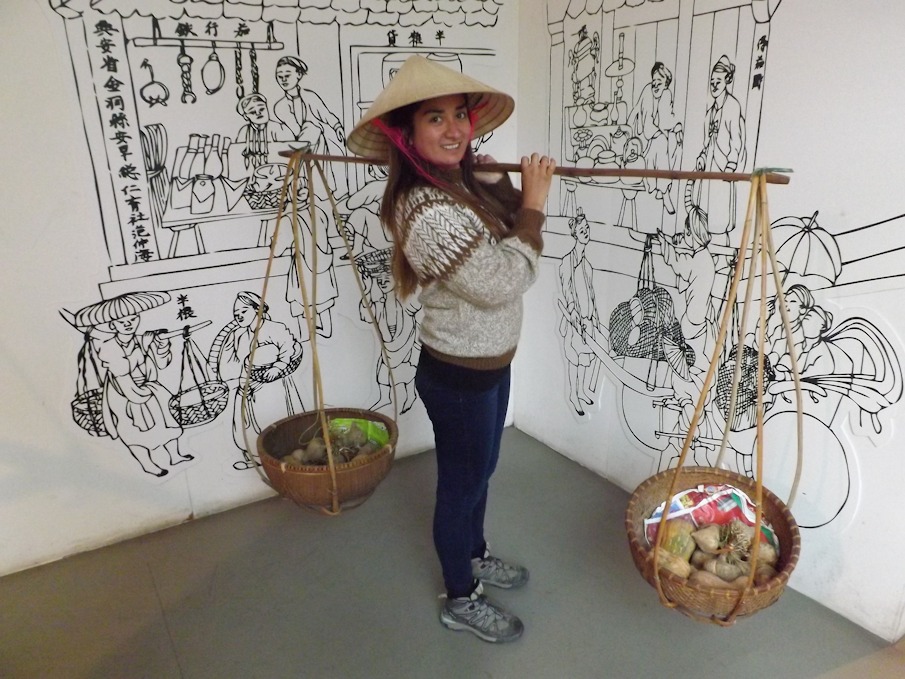
Where it happens
Mostly around the old town of Hoi An, though I’ve seen it in Hanoi as well.
How to avoid
Just saying no should be enough. There’s a chance they try and put the shoulder pole on you – don’t let them.
8. The overly friendly girl(s)
Guys, use your brain. If an unknown woman approaches you on the street and flirtatiously grabs your arm/other body parts, it’s very unlikely to mean that she has a high opinion of you. She might be trying to sell you something, or she might be trying to pick your pockets. The dong she wants isn’t in your pants.

Location: Fanny’s Ice Cream, Ho Chi Minh City
Things like this don’t only happen on the street. When I was paying a bill in a local restaurant, a waitress suddenly stared at me like she’d been hypnotised and declared “your eyes are so beautiful”. As much as I’d like to think she was hypnotised by my facial features, I’m pretty sure the waitress was thinking about dong, I mean a tip (ok – no more of these).
Where it happens
This is another one that can happen pretty much anywhere in the country.
How to avoid
If you get caught in this situation, keep your hands on your pockets, decline whatever is suggested and walk away.

9. The motorbike salesmen
Not actual motorbike sellers, but guys driving around the streets at night on the lookout for foreigners to bother, especially solo male travellers (lucky me), with offers of drugs and/or prostitutes.
As a good boy who’s never done anything wrong in his life, I’ve always declined (at least one of these statements is true). However, I understand that the drugs are usually fake and the prostitutes do not look as advertised (the motorbike pimp will kindly flash photos in your face without being asked to). Also, both drugs and prostitution are illegal in Vietnam – penalties for the former can be deadly.

Where it happens
I mostly received offers in Hanoi, but you’re likely to be approached in any tourist area where there’s nightlife.

How to avoid
Another instance where you just have to say no and they can’t do anything except be annoying and keep asking until they give up.
10. The imitators and false advertising

A common occurrence with travel companies in Vietnam. Whenever a travel company earns a good reputation, other businesses will open up with similar names and logos, hoping to cash in on unwary tourists. Despite similarities in branding, the imitation will not extend to the quality of service.
The same companies will often offer tours or transport services that do not deliver what they promise. When a sleeper bus is advertised as having onboard toilets and Wi-Fi, it’s not very nice to find out at the start of your 10 hour bus trip from Hoi An to Phong Nha that neither exist.
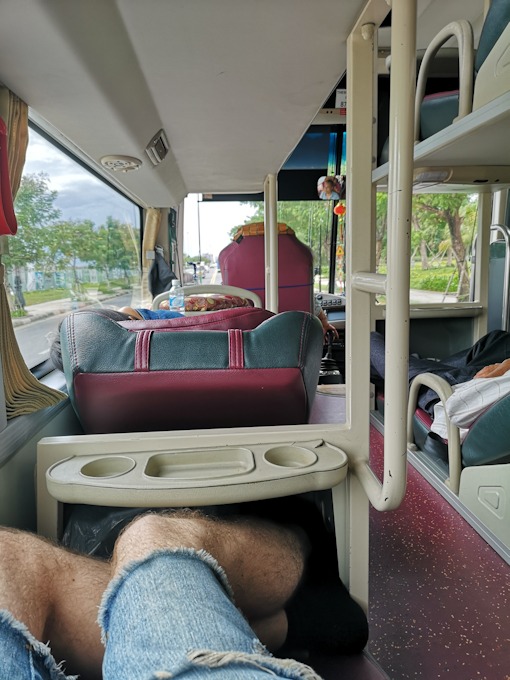
Where it happens
At tour agencies, both online and in physical locations.
How to avoid
Google the companies and check online reviews – there is a lot of information online. Also, if an employee at the tour agency tells you the company with negative/mixed reviews has just got nice new buses, don’t take their unscrupulous word for it.
A few thoughts

As much as I’ve (half-jokingly) moaned throughout this post, remember that a lot of people around the world cannot afford to travel and that’s true for many in Vietnam. Imagine never having the money to leave your country but seeing thousands of people from the other side of the world come and visit yours, some of whom will be visiting as part of a backpacking trip covering multiple countries and continents. I don’t have any problem paying a bit more than a local, what annoys me is the dishonesty and being treated like an idiot. Don’t change the taxi price on Grab from 50,000 to 500,000 on my phone while I’m looking, don’t pretend to be interested in talking to me when you only want my money – it’s just insulting and disrespectful. When this sort of thing is constantly happening, it becomes extremely frustrating.
Ultimately, a good number of the people that have tried to rip me off will have never left Vietnam due to financial restrictions. I left the UK in October 2018 and have been travelling/working remotely ever since while going from country to country (at least until COVID hit). I’m in a good position and part of the reason for that is simply down to the wealth of opportunities available in my home country.
Finally, is it worth visiting Vietnam with these issues?
Yes, absolutely. The country is full of things to see and do and, frankly, you will face tricks like these when travelling to just about any developing country. There are plenty of amazing experiences to be had in Vietnam but nothing is perfect. These issues, while frustrating, are a part of travelling and some of the experiences can be funny to look back on. Along with the photos that are loosely scam related, I’ve scattered a few nicer photos from my trips to Vietnam around this post and this is just scratching the surface of what the country has to offer.
You could probably avoid all or most of these scams/rips offs by booking a controlled, all-inclusive tour around the country but I can’t imagine that being as enjoyable and, in all likelihood, the fancy tour package will cost a lot more than what the local swindlers try and get from you.
[…] or ripped off. There are so many petty scams aimed at foreigners in Vietnam, that I decided to write a separate post covering some of the common scams and how to avoid […]